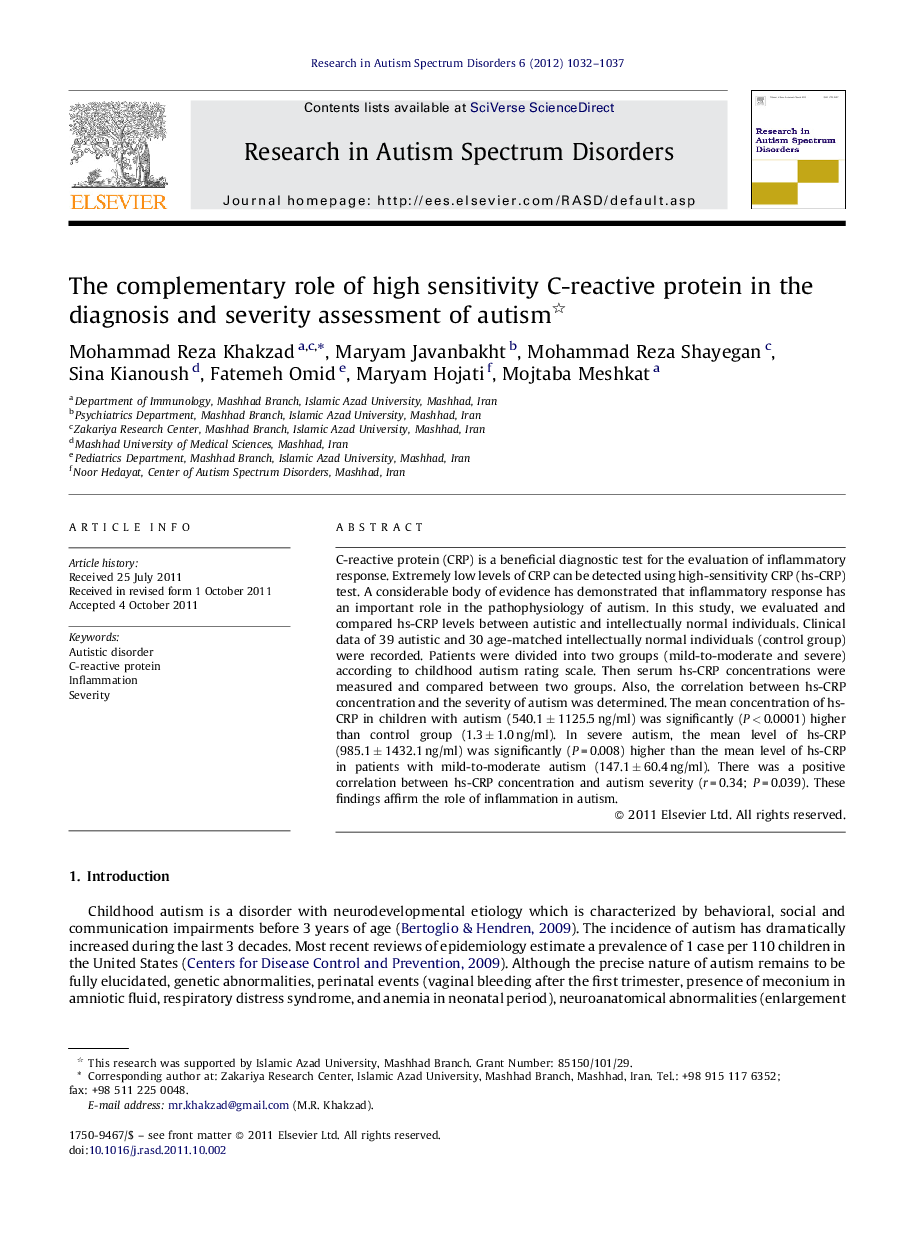| Article ID | Journal | Published Year | Pages | File Type |
|---|---|---|---|---|
| 370614 | Research in Autism Spectrum Disorders | 2012 | 6 Pages |
C-reactive protein (CRP) is a beneficial diagnostic test for the evaluation of inflammatory response. Extremely low levels of CRP can be detected using high-sensitivity CRP (hs-CRP) test. A considerable body of evidence has demonstrated that inflammatory response has an important role in the pathophysiology of autism. In this study, we evaluated and compared hs-CRP levels between autistic and intellectually normal individuals. Clinical data of 39 autistic and 30 age-matched intellectually normal individuals (control group) were recorded. Patients were divided into two groups (mild-to-moderate and severe) according to childhood autism rating scale. Then serum hs-CRP concentrations were measured and compared between two groups. Also, the correlation between hs-CRP concentration and the severity of autism was determined. The mean concentration of hs-CRP in children with autism (540.1 ± 1125.5 ng/ml) was significantly (P < 0.0001) higher than control group (1.3 ± 1.0 ng/ml). In severe autism, the mean level of hs-CRP (985.1 ± 1432.1 ng/ml) was significantly (P = 0.008) higher than the mean level of hs-CRP in patients with mild-to-moderate autism (147.1 ± 60.4 ng/ml). There was a positive correlation between hs-CRP concentration and autism severity (r = 0.34; P = 0.039). These findings affirm the role of inflammation in autism.
► Inflammatory process can play key role in the pathophysiology of autism. ► Higher levels of hs-CRP are detected in autistic children. ► A correlation exists between hs-CRP level and autism severity. ► Hs-CRP can be considered a complementary diagnostic test for autism.
